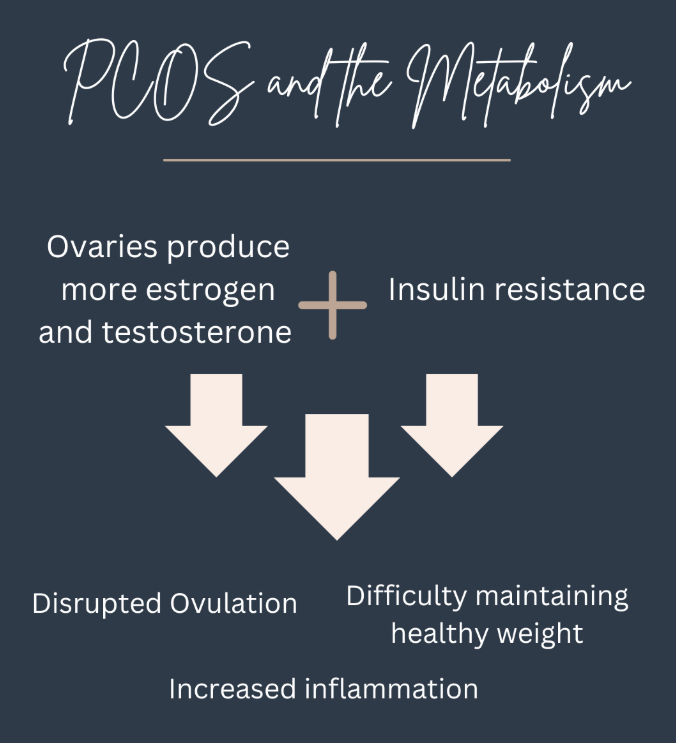
Polycystic Ovary Syndrome (PCOS) isn’t just about irregular periods or acne. At its core, PCOS is a metabolic disorder—and that matters when we talk about how to manage it.
In PCOS, the ovaries often produce more testosterone and estrogen, and insulin resistance is common. That combo can disrupt ovulation, increase inflammation, and make it harder to maintain a healthy weight.
The good news? Lifestyle changes can make a real difference, and you don’t have to do it all at once. Here’s where to start:
1. Balance Blood Sugar:
2. Move Regularly:
3. Prioritize Sleep & Stress Management:
4. Consider Supplements:
PCOS is complex, and every person is different. If you’ve been diagnosed or think you may have PCOS, we’re here to help you build a personalized plan that works for your life and your goals.
If you have any concerns or questions about PCOS, feel free to reach out to us. We’re here to support you every step of the way.